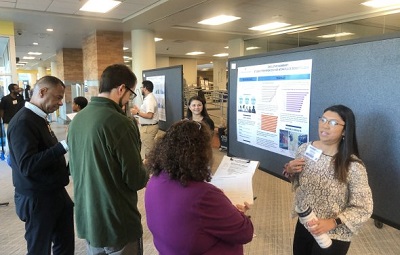Kids on Drugs: Parenting Practices and Substance Use among Children of Substanceabusing Parents
Description/Abstract/Artist Statement
This presentation will examine both mothers’ and fathers’ psychological control, knowledge of youth whereabouts, activities and peers, and acceptance as related to depressive symptoms and substance use (i.e., alcohol and marijuana) among children of substance abusers. After controlling for child age and fathers’ knowledge of youth, mothers’ knowledge of youth whereabouts, activities, and peers contributed to lower depressive symptoms which contributed to less likelihood of ever having tried alcohol and marijuana. Controlling for child age and fathers’ parenting, mothers’ use of psychological control and acceptance contributed to lower depressive symptoms which contributed to less likelihood of ever having tried alcohol.
Presentation Type
Event
Disciplines
Psychology
Location
Learning Commons @ Perry Library Conference Room 1311
Start Date
2-13-2016 11:30 AM
End Date
2-13-2016 12:30 PM
Upload File
wf_no
Kids on Drugs: Parenting Practices and Substance Use among Children of Substanceabusing Parents
Learning Commons @ Perry Library Conference Room 1311
This presentation will examine both mothers’ and fathers’ psychological control, knowledge of youth whereabouts, activities and peers, and acceptance as related to depressive symptoms and substance use (i.e., alcohol and marijuana) among children of substance abusers. After controlling for child age and fathers’ knowledge of youth, mothers’ knowledge of youth whereabouts, activities, and peers contributed to lower depressive symptoms which contributed to less likelihood of ever having tried alcohol and marijuana. Controlling for child age and fathers’ parenting, mothers’ use of psychological control and acceptance contributed to lower depressive symptoms which contributed to less likelihood of ever having tried alcohol.



Comments
Faculty Mentor: Dr. Michelle L. Kelley